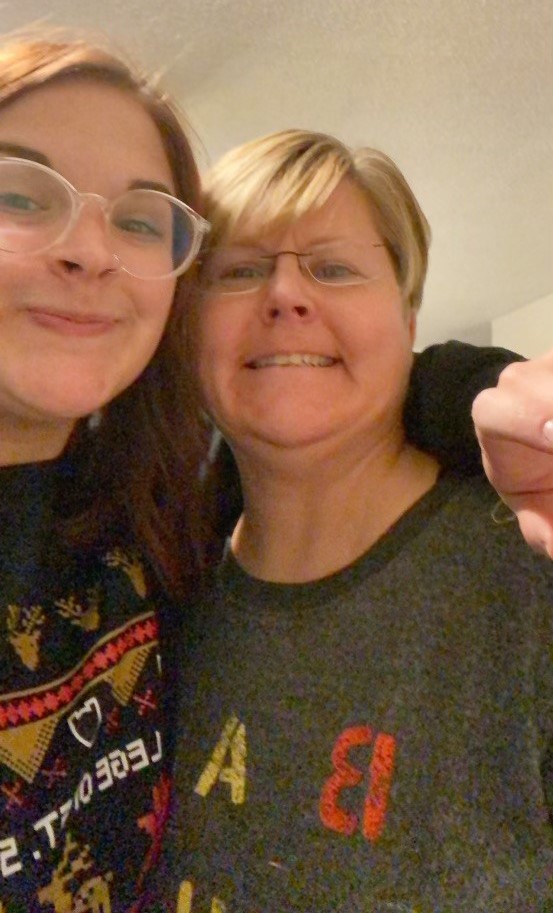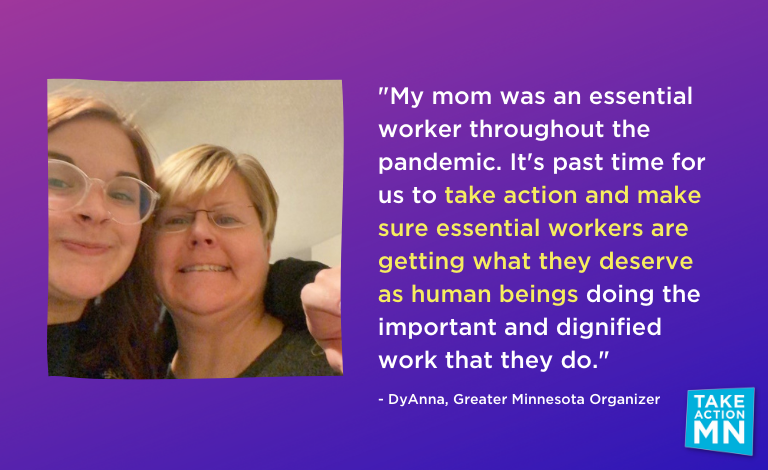I’ve been thinking a lot about the Tiger King part of the pandemic. I’d just landed my job here at TakeAction, and I was painting my friend Maddy’s kitchen and bathroom in exchange for a couple months off rent. (I wasn’t planning to move in until May, but the pandemic frenzy led me to move in late that March). She must have watched all of Tiger King that first weekend. I listened along and painted the whole time, both of us dissociating ourselves from the crisis at hand and assuring ourselves that if we all followed Gov. Walz’s orders, we’d be out of our houses by fishing opener in May.

That’s how Maddy and I spent our days in the beginning of the pandemic. We worked, followed the news, and kept track of the next big thing: Tiger King, Dalgona Coffee, sourdough — you name it, we tried it.
I remember when the spotlight turned to “essential workers.” Night after night, we watched videos of people filling up city balconies outside of hospitals to offer standing ovations to hospital staff. We saw nurses and doctors sharing their horror stories from inside the ER and buildings lit up in great big hearts for essential workers.
“Essential workers” was a phrase none of us had really heard or used before — and it was a big part of the dialogue early in the pandemic. As the pandemic continued to unfold, these questions loomed large in my brain:
- “Essential workers” — What does that even mean? Who does that include?
- If these roles and the people who fill them are so essential, why aren’t they being paid essential wages?
I learned that educators, caregivers, farmers, grocery store and convenience store workers, social workers, and more are all essential frontline workers who keep our state going. My mom’s been an essential worker throughout the entire pandemic, and it hasn’t been easy. She’s a certified nurse’s assistant. Recently, she reclassified to casual staff at the nursing home where she works so she can get some much needed rest and focus on her true vocation: granny-nannying.
Before my niece Greta was born, though, we spent so many nights on the phone talking about the challenges on the job in the middle of a pandemic: illness, short-staffing, and feeling like patient care was taking a back-seat to “getting by.” That — and patient deaths — broke her heart the most. And the pain wasn’t just emotional. On top of it all, she was on her feet so much in the last year that she developed plantar fasciitis. The last time I was home, we checked in on how she was feeling about going down to casual staff. She said that while she’d miss her patients, she’s clear her body and heart can’t keep up with how things are going now — and my mom isn’t alone in that.
Essential workers have had their hearts and bodies on the frontlines since decades before the pandemic, and it’s past time for us to take action and make sure they’re getting what they deserve as human beings doing the important and dignified work that they do. If you haven’t already, read my friend and coworker Roberts’ awesome blog detailing some of the bills in the MN Legislature that would support essential workers, and take action today. Contact your Senator now, and tell them it’s time to #MakeItRight by passing the Frontline Worker Pay bill. Customize your message to make it memorable.
I want to close with one final thought on all this. Looking back now, it makes my blood boil how the world’s billionaires have amassed such wealth during the pandemic — while essential workers have put their mental and physical health on the line, giving their all and getting little in return. Essential workers have delivered us through this much of the pandemic, and it’s not enough to just call them heroes. It’s time to pay up.

